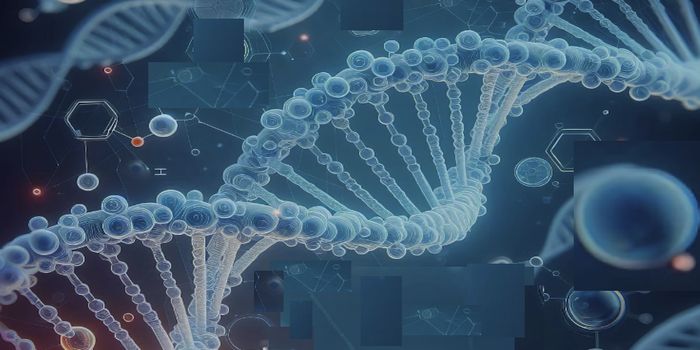An Unusual Mutation Helps Explain the Genetics of Autism
Autism spectrum disorder, also known simply as autism or ASD, is a developmental disorder that can vary widely from one patient to another. It can affect how people behave, socialize, or communicate with others, and symptoms tend to include repetitive behaviors. People with ASD may be nonverbal, have gastrointestinal issues, or seizures. The causes of autism are still being investigated, but the disorder is thought to be related to genetic and environmental factors.
Scientists have now identified a unique type of genetic mutation that could be related to the development of autism. This mutation affects the three-dimensional (3D) structure of the genome, which can have a range of cascading impacts because how DNA is structured in cells can have a dramatic effect on the expression of many genes. Thus, one mutation that alters genomic structure can end up influencing the expression of many other unmutated genes. The findings have been reported in Cell Genomics.
There is familial aspect to autism, and research now suggests that the genetics of autism have a connection to features of the genome that do not code for protein. Although genetic research focused on protein-coding genes for many years, there are many other characteristics of DNA such as methylation patterns, non-coding regions, and structural features of DNA that can impact health and biology.
In a massive study of ASD genetics, researchers have now analyzed data from over 5,000 autism patients and their families. This effort focused on mutations that are de novo, meaning they were not inherited from parents, and parts of the genome called topologically associating domains (TADs). TADs are 3D genomic structures that bring together different genes and their regulators.
There are gene sequences known as promotors that precede genes. The transcription of a gene is started at its promotor. In this study, the investigators determined that de novo mutations in promotors can increase autism risk, but only when those promotors were present in TADs that also included genes related to autism. The de novo promotor mutations can impact the expression of autism-related genes because they are linked through the TAD.
The study authors noted that the findings can explain how mutations that are not found in genes that are related to autism can end up increasing the risk of the developmental disorder.
"Our most important discovery was that de novo mutations in promoter regions of TADs containing known ASD genes are associated with ASD risk, and this is likely mediated through interactions in the three-dimensional structure of the genome," said study leader Atsushi Takata of RIKEN CBS.
When the scientists used CRISPR to introduce similar mutations in a promotor in stem cells, they observed a similar effect; the promotor mutation altered a gene that has been associated with autism, and was in the same TAD.
Takata noted that the link between one promotor mutation and autism-related genes that may be very far away in the genome is like a "butterfly effect." The research could also open up new diagnostic or therapeutic options, Takata suggested.
"At the very least, when assessing an individual's risk for ASD, we now know that we need to look beyond ASD-related genes when doing genetic risk assessment, and focus on whole TADs that contain ASD-related genes," Takata said.
Additional research will help us learn more about the complex genetics underlying the development of ASD, and this work will eventually help patients and their families, added Takata.
Sources: RIKEN, Cell Genomics









